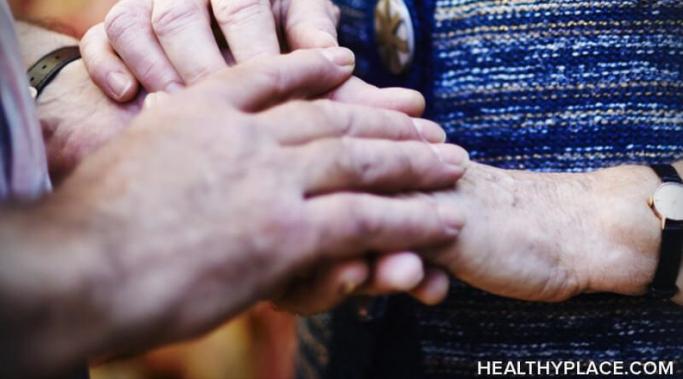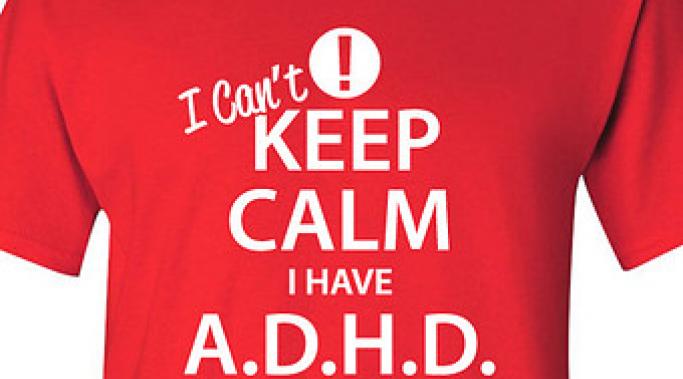Blogs
In 2010, I worked as a peer support specialist for a mental health organization in my community. Having been on the job for just over a year, I was feeling fulfilled and proud of myself for what I’d accomplished. Most importantly, I was making a difference to other people who suffered from mental illness. My colleagues were happy with my work and made it a point of telling me so.
So imagine my surprise when I was called into the boss’s office one day. She looked at me and said, “Mike, you are decompensating.” I didn’t even know what that meant.
I’ve been writing about bipolar disorder for 11 years and I’ve been a professional in the field of mental illness for about four. In other words, I’ve been thinking about bipolar disorder, a lot, for a very long time.
And I’m not the only one. Whether you happen to write about bipolar or just suffer from it, bipolar can easily inhabit your life 24/7. There’s the bipolar routine, medications, sleep cycle worries and many, many other things that, when dealing with bipolar, creep into your daily life.
But sometimes it’s really important to forget about bipolar disorder for a while.
I was diagnosed with severe mental illness while I was a sophomore in college. I was suicidal, which prompted an emergency psychiatric evaluation. Unfortunately, it also prompted eviction from the dorm and suspension from school. I later got the director of the counseling center to admit--on the record--that the policy was more for the benefit of other students than the suicidal student. It was not the most compassionate of policies. So how can colleges and universities help students with mental illness?
One of the things that I have had to learn (over and over again) throughout the course of my recovery from anorexia, is that urges don't last forever. Regardless of how strong the desire is to use a certain behavior, it will pass and I can get through without derailing my eating disorder recovery. "How?" you might ask. That's right, folks -- we're talking about coping skills again.
At some point in every adult with attention-deficit/hyperactivity disorder's (ADHD) life, there comes a time when she needs to pay it forward. Friday, I had the opportunity to pay forward my history with this disorder to an adult ADHD newbie, a person freshly diagnosed. He was four months post-diagnosis and, he reported, sought help due to some issues at work with attention. At 30, having been diagnosed over 10 years ago, I feel it is my duty to pay it forward and to let newbies in on any insights I might possess that took me years to learn. What should every newbie know - and what should we diagnosed in years past let them in on?
"But he doesn't look sick," my daughter said. She was right. On the outside, Bob looked like any other middle school child. What his sister and the rest of the world didn't know was that Bob had been diagnosed with a serious mental illness. His psychiatrist suggested we keep Bob home from school and wrote a note stating Bob was a threat to himself and others. Now I had to explain this to Bob, his sister and the rest of the world.
Did you see the film A Beautiful Mind starring Russell Crow? I did. If you didn’t, you should check it out. It is a splendid biographical drama film based on the life of Nobel Prize winner John Forbes Nash Jr.; Crow stars as Nash and Jennifer Connelly his wife. It’s a story of man whose mind, on one hand, yielded huge benefits to society while, on the other, let him down with troublesome schizophrenia.
Is attention-deficit disorder (ADD) caused by genetics, as is often reported, or is it due to factors related to home environment, as another new study has indicated?
If the question on everyone’s lips right now in the ADD community is nature or nurture, the answer is: a little of both.
Many individuals believe that self-harm and suicide are directly linked but, in fact, this is not the case. In all honesty, self-harm and suicidal behaviors are completely different. Unfortunately, it is common for these two behavioral disorders to get grouped together because they both have something to do with inflicting pain on oneself. Additionally, there are some instances when an individual who self-harms will end up committing suicide. The simplest way to put it is that, generally those who self-harm do not wish to kill themselves, while suicide is a way of ending life.
Two things happened last month that stirred me to revisit an often-examined question:
Am I too involved in my adult son's life (Ben has schizophrenia.)? Have I "stolen his manhood and his rights" by insisting on treatment for his schizophrenia?
One reminder came in the form of a reader's book review on Amazon.com for Ben Behind His Voices, calling it a "Testament to Abuse of Power and Parental Authority," the only one-star review in a sea of 5-star praise and gratitude. Clearly, a man with an agenda, so I didn't take it too personally, but this is not the first time I've been called an over-involved parent. On the other hand, I've also been criticized by others for not "stopping" Ben from dropping out of high school, for "allowing" my son a period of homelessness in Idaho and "letting him fail" when he gained and then lost five different jobs after he returned.








